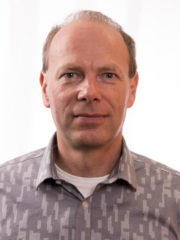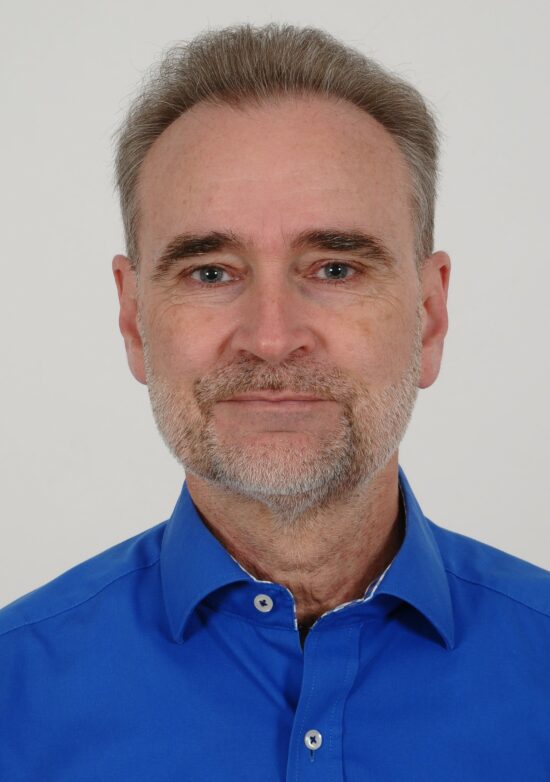2023 ICNS Technical Program Overview
This year’s program includes an exciting collection of technical papers covering a wide array of aviation-related topics grouped in to the six technical tracks described below. ICNS received abstracts from authors in many countries, representing government organizations, industry, and academia.
These are exciting times! We look forward to your participation and encourage your active engagement throughout the conference.
Technical Program Chairs
- Prof.dr.ir Erik Theunissen, Netherlands Defence Academy (NLDA)
- Dr. Michael Schnell, German Aerospace Center (DLR)
- Email: technical.chair@i-cns.org
Track 1 – Traffic Management
Co-chairs
Bernd Korn, German Aerospace Center (DLR)
Brian Stein, MITRE
In this track, sessions will address developments in the areas of UAS Traffic Integration, Separation Management and Collision Avoidance, ATM Concepts, Terminal Operations and Advanced Air Mobility/ Urban Air Mobility.
Track 2 – Operational Efficiency
Co-chairs
Dongsong Zeng, MITRE
Rainer Koelle, EUROCONTROL
In this track, sessions will address methods for Efficiency, Data Driven Concepts, OPS Plan and Separation. Topics include Autonomous Forecast Trend Monitoring, Conflict resolution using Machine Learning and Multi-objective Collaborative Trajectory Deconfliction.
Track 3 – CNS for UAS and UAS Applications
Co-chairs
Rafael Apaza, NASA
Fred Wieland, Mosaic ATM
In this track, sessions will address developments in the areas of UAS Landing and Surveillance, UAS Comm and Navigation, and issues for UAS Integration in the NAS. Topics include 4G/5G communication links and analysis of multipath impact.
Track 4 – Communications and Cybersecurity
Chair
Greg Saconne, Boeing
In this track, sessions will address developments in the areas of Cyber Security Modelling and Architecture, Communications Performance, Future Communications, and Communication System Implementation Considerations.
Track 5 – Navigation, APNT, and Surveillance
Co-chairs
Matt Moser, Boeing
Adrian Solomon, Thales
In this track, sessions will address developments in the areas of ADS-B Performance, Monitoring, and Analysis, Alternative Position-Navigation-Timing (PNT)Concepts and Evaluation, and Existing PNT & Surveillance. Topics include detecting of drones by their RF signature using deep learning and detection of GNSS interference through analysis of ADS-B reports.
Track 6 – Special Topics
Chair
Paul Prisaznuk, ARINC Legacy
In this track, sessions will address the Evolution of the NAS using innovative solutions, Space Ops, Autonomy, Security, Machine Learning and Electric Aircraft.
Technical Program Chair Biographies
Prof.dr.ir Erik Theunissen, Netherlands Defence Academy (NLDA)
Prof. Theunissen has been active in the field of avionics for over 30 years. He is a member of the AIAA/IEEE Digital Avionics Technical Committee and RTCA Special Committee 228. Since 2003 he is a professor (part-time) at the Netherlands Defence Academy (NLDA). The company ISD, which he founded in 1988, has designed synthetic vision systems for Rockwell Collins that have been flight-tested in the Boeing 727 from the FAA, the Boeing 737-900 Technology Demonstrator, the NASA Boeing 757 ARIES, and several other test aircraft). Since 2008 he has been involved in the design and evaluation of Detect and Avoid systems for unmanned aircraft, and since 2010 his company ISD is involved in the design of the GA-ASI Conflict Prediction and Display System (CPDS). Between 2014 and 2018 he supported flight testing of CPDS, a prototype self-separation system, at NASA Armstrong. For his research, he has received over 20 international awards among which two times the MITRE-sponsored David Lubkowski Award for Best of Conference.

Dr. Michael Schnell, German Aerospace Center (DLR)
Michael Schnell is senior scientist at the Institute of Communications and Navigation of the German Aerospace Center (DLR). His main research interests are the development and modernization of CNS technologies for civil aviation and unmanned aerial systems.
After his studies at the University Erlangen-Nuremberg he joined DLR in 1990 with a Master of Science in electrical engineering. Since then he has been working as scientific researcher and earned a doctoral degree for his work on wireless communications in 1997 from University of Essen (today University of Duisburg-Essen). Dr. Schnell is a lecturer for multi-carrier communications as well as for aeronautical communications and acts as selected advisor for the German Air Navigation Service Provider (DFS GmbH) on various committees at EUROCONTROL and ICAO. As rapporteur of the project team “Terrestrial Data Link” within the ICAO Communications Panel he is organizing the international standardization of the future terrestrial data link LDACS. He has authored/co-authored over 120 publications, including more than 20 journal articles. He is a senior member IEEE as well as member of AIAA and VDE/ITG.

